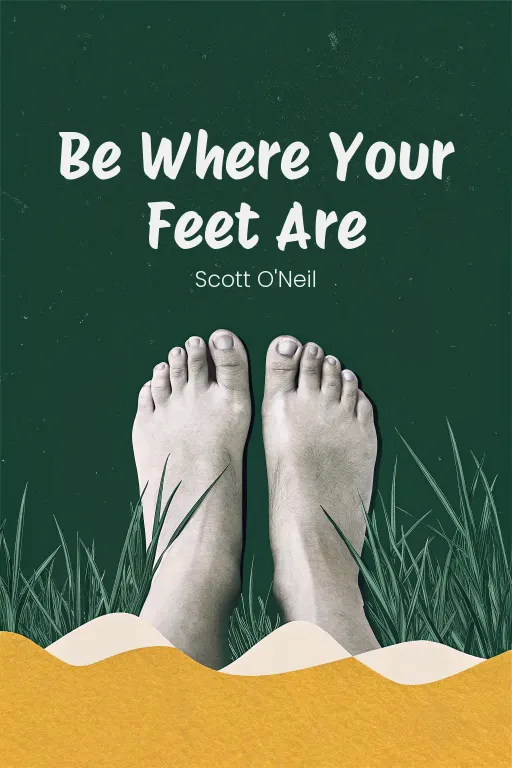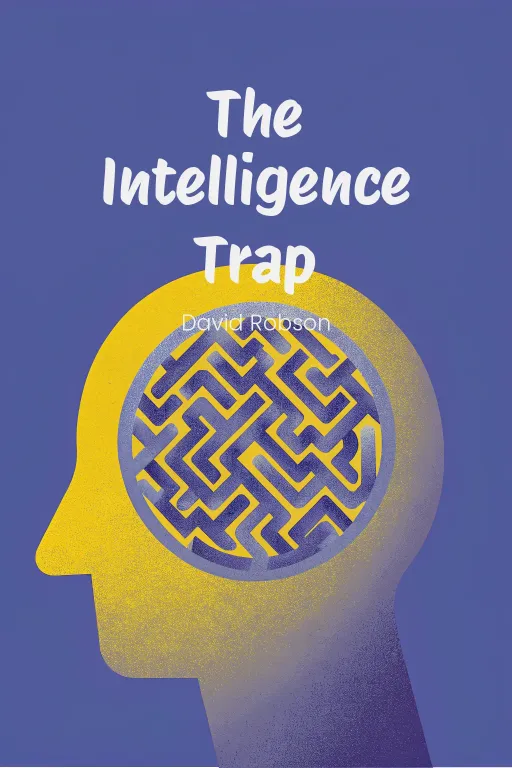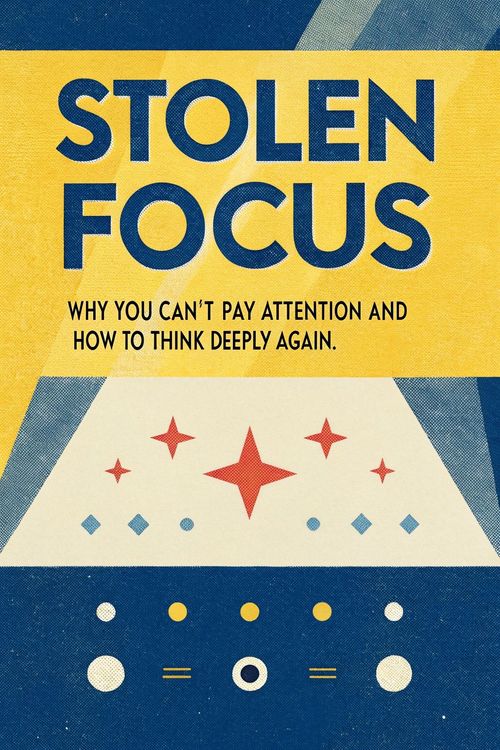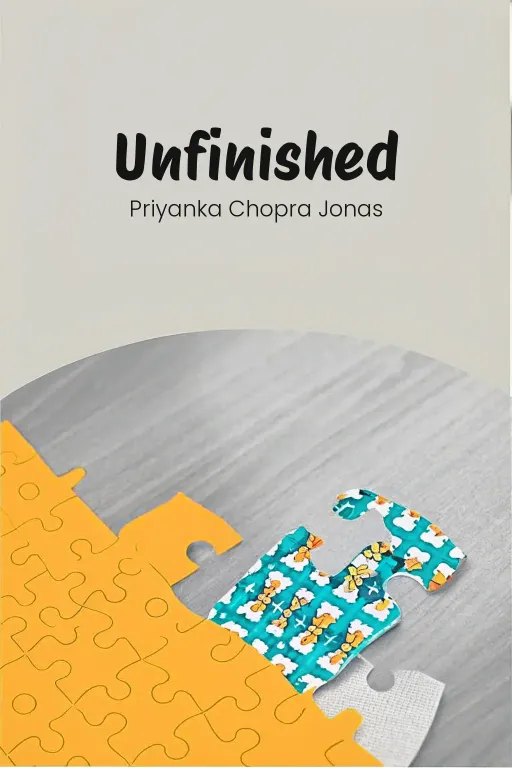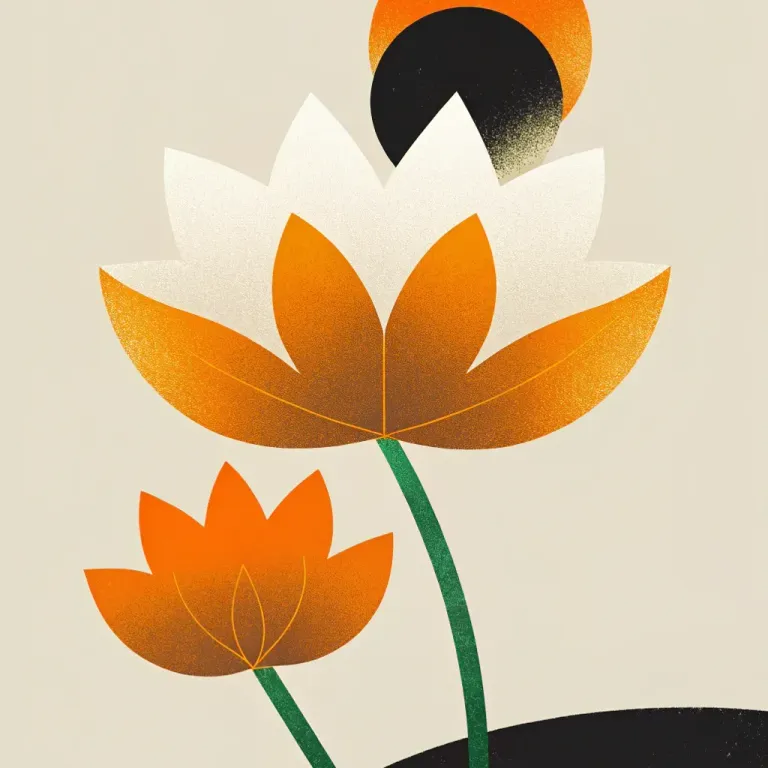
Find Your Focus: Mindfulness Habits Now
Podcast by Beta You with Alex and Michelle
Seven Principles to Keep You Present, Grounded, and Thriving
Find Your Focus: Mindfulness Habits Now
Part 1
Alex: Hey everyone, welcome back! Let me kick things off with a question: how often do you feel totally scattered? You know, juggling work, social media, family stuff… but never really present, “in the moment”? Michelle: Oh, you mean my daily routine! Multitasking overload, zero focus. Nailed it, Alex. Alex: Exactly! That's the core issue Scott M. O’Neil addresses head-on in his book, Be Where Your Feet Are. It’s about tapping into the power of being present, and how that simple shift can impact, well, everything. Michelle: Okay, I'm intrigued. So, philosophy meets real-world application? Alex: Definitely. O’Neil combines personal anecdotes, leadership insights, and actionable principles to help us build mindfulness, resilience, and better relationships. The core idea? Identify your values, laser-focus on what counts, and grow from the inside out. Michelle: I hear you—no quick fixes or silver bullets. So, what's on the agenda today? What aspects of the book are we diving into? Alex: Good question. We're going to dig into three key areas. First, mindfulness, and how it keeps us anchored when life gets crazy. Second, resilience, turning tough situations into opportunities for growth. And finally, teamwork emphasizing how accountability and connection lead to shared success. Michelle: Mindfulness, resilience, and teamwork—sounds like a full workout for the mind, the spirit, and even our social connections. Alex, where should we begin?
Mindfulness and Present-Moment Living
Part 2
Alex: Okay, let's jump into the first pillar: mindfulness and living in the present. O'Neil really focuses on this, because it's basically the foundation for everything else in the book, that “how” we live meaningfully. He's big on the idea that being present is where it all begins. It’s the starting point for personal growth, and managing stress, and definitely for deeper relationships. Michelle: Right, but how do you actually do that, Alex? I mean, conceptually, I get it, but what does "being present" actually look like when life keeps throwing curveballs at you? Alex: That’s exactly what O’Neil dives into, actually. He talks about this really intense exercise from a retreat. He had to imagine having one final conversation with his daughter, Kira. Imagine summarizing your life advice into a single talk, right? He whittled it down to three core truths: "Family is everything," "It will always be okay," and "Anything, anytime." Michelle: Woah, hold on a second--"It will always be okay"? That sounds a bit... optimistic, doesn't it? What does that even mean when things are clearly not okay? Alex: It’s more about a shift in perspective, really. He talks about how the pandemic, for example, threw all of his relationships, the whole life into sharper focus. He realized that even amid all the chaos, grounding himself in family or community could provide stability. Michelle: Okay, I get it. The exercise pushed him to really prioritize, to cut through the noise and focus on what really matters. But is there a risk of oversimplifying things? Not everyone has the perfect “family is everything” situation to fall back on, you know? Alex: True, and that's where "family" gets a broader definition, doesn't it? It's about those relationships or community that ground you, whether they're biological or chosen. It’s really how you show up for those relationships. He mentioned leaving his phone in the car when he got home. Small thing, but powerful, right? It forced him to actually engage with his family instead of just scrolling through emails. Michelle: Right, the old phone-in-the-car trick. Simple in theory. I wonder if he actually stuck with it? Alex: He did for quite a while, actually! And it’s not just about the phone. It's about putting systems or boundaries in place that stop you from just going through the motions. Another tool he used was regular meditation. It helped him move from what he calls a "warrior mindset” to a “sage mindset.” Michelle: Sage mindset, huh? Alex, are we about to summon some ancient wisdom here? Sounds a bit… out there. Alex: Not really – it’s about balance. O'Neil admits he started out skeptical about meditation. But his mentor, Tricia Naddaf, pushed him to try it out to find some clarity amidst all the chaos. Sure, his first attempts were messy – wrestling with work thoughts, all that. But overtime, those few quiet moments helped him refocus, both mentally and emotionally. Michelle: Okay, so we're not talking about sitting on a mountaintop chanting "ohm.” More like bite-sized strategies for getting clarity, right? Alex: Exactly. Which leads to another key mindfulness practice he talks about: having real, raw conversations with the people you love. He mentions how his wife, Lisa, had no problem calling him out when he came home obviously distracted by work. Her being honest – that his daughters needed a present father, not someone lost in his head – really hit home, actually. Michelle: Ouch. Brutal, but necessary I guess. It’s easy to miss those little signals from others until they pile up into something bigger, right? Alex: Exactly! In moments like that, you can either get defensive, or you can actually, you know, take stock in what's actually happening. Lisa's feedback helped O’Neil reassess his priorities and change his habits. It’s a reminder that mindfulness isn’t something you practice alone. It grows in relationships. Michelle: Speaking of relationships, I remember you hinting at something earlier during the pandemic. Stuffed animals at dinner, wasn’t it? Alex: Oh, yes! That was one of my favourite parts of the book. Like a lot of families during the pandemic, O’Neil’s slower schedule opened up space for these playful, unscripted moments. One night, they decided to bring stuffed animals to dinner, and it turned into this funny, quirky way to connect. That kind of spontaneity brought real joy – and it showed that mindfulness doesn't have to be all serious and meditative. Michelle: Okay, that's great, I love that. Like, mindfulness in action, almost. Not through breathing exercises or journaling, but just embracing what's happening right now. Alex: Exactly. Those moments, as little as they seem, are often the ones you cherish the most. You have to be open to joy, wherever it comes from, even if it's a goofy dinner with stuffed animals. Michelle: Noted. But, Alex, I seriously need to raise a flag here. How do you actually manage any of this with all the digital distractions we have in our lives? Our phones, notifications, work emails – they're not going away anytime soon. Alex: That's a really fair point, Michelle. O’Neil doesn't pretend that mindfulness means completely cutting out technology. Instead, he suggests creating intentional boundaries. Things like not using phones at meals and even phone-free meetings at work. These pauses force you to connect with the people around you on a deeper level. Michelle: And what about when the distractions aren't technological? I mean, what about your own stress, your own worries swirling around in your head? Alex: That’s where things like meditation, or focusing tools can help. But O'Neil also shares Dave Sholler’s story. Do you remember it? Michelle: Ah, right, the guy who shifted his perspective even though he had a really tough upbringing, right? Alex: Exactly. Growing up with lots of with financial problems and a father battling addiction, Dave could have easily been swallowed up by bitterness. But seeing someone in much tougher situations helped him develop gratitude. It’s a great example of how you can change how you see things, even in difficult situations, and reclaim that sense of presence. Michelle: So, recognizing that we can't control everything that happens, but we can control how we respond. And doing so helps us reconnect with the moment. Alex: 100 percent. Mindfulness isn’t about getting some perfect Zen state. It's about making small, intentional changes that keep us grounded, even when life gets messy. Whether it's cutting out distractions, finding moments of joy, or just taking a breath, those steps are what lead us to a more meaningful life. Michelle: Alright, Alex, I'm not saying I'm enlightened or anything, but you've definitely got me thinking. Mindfulness might not be magic, but it sounds like a solid starting point.
Resilience and Adaptability
Part 3
Alex: Building on mindfulness, let’s dive into resilience and adaptability. This is where things get real—when life throws those inevitable curveballs, and you have to pivot or bounce back. Michelle: Okay, so we’re shifting from Zen-like calm to practical problem-solving? Color me intrigued. Alex: Exactly, Michelle. And it connects mindfulness with strategies for tackling challenges. Growth isn't just about thinking; it’s about acting and adapting. Michelle: Alright, sounds like resilience 101. What’s our first lesson? Alex: “Failing forward.” Scott O’Neil illustrates this with the story of lacrosse star Paul Rabil. Michelle: The guy who publicly stumbled during his peak, right? What happened? Alex: Exactly. The 2014 World Championships. Paul's team captain when the U.S. team lost. He faced internal and external disappointment. Michelle: Ouch! His identity was wrapped up in winning? Alex: Totally. His sense of self-worth was tied to external validation, so he kind of spiraled. But, he turned things around with a sports psychologist. Michelle: Aha, therapy to the rescue! Seriously, what shifted? Alex: Redefining success. Not based on expectations, but on personal fulfillment and deeper relationships. Focusing on joy and meaning. Michelle: So, failure became a detour, as opposed to a dead end? Alex: Exactly. He turned failure into a stepping stone. O’Neil wants us to see emotions – disappointment, shame, regret – as springboards. Face it, reframe it, and grow. Michelle: Makes sense in theory. But easier said than done, right? “Learning moments” feel like a luxury for those with resources. Alex: A totally valid point. Access isn't always equal, but, the principle still applies. Self-reflection or advice from trusted sources can spark a similar shift. Michelle: Fair enough. So, it's not avoiding failure, but doing something with it, right? Alex: Precisely. That brings me to shifting perspective. Dave Sholler's story shows this beautifully. Michelle: Dave, who grew up in a trailer park with lots against him, right? Alex: Yes. Poverty, evictions, a father battling addiction. Everything changed after seeing a mom struggling at a rescue mission. Michelle: Not a Hollywood epiphany, I guess? Alex: Not quite. Dave realized that others faced even greater hardships. Michelle: Gratitude through comparison? Alex: To a degree, yes. It fueled him to rise above his circumstances. Gratitude can help us see the good and our potential. Michelle: I see the point, but is there a danger of minimizing your own struggles by comparing them to someone else’s? Alex: A fair point. O’Neil clarifies that it’s not about ignoring your pain. It's about a broader view. Recognizing what you do have can give us strength. Michelle: Shifting perspective takes practice, right? You don’t suddenly wake up grateful. Alex: Totally. Intentional practices—journaling, reflecting—help reinforce that habit. It’s gradual. Michelle: Okay, so where does community fit in? Alex: Community's the backbone of resilience. Scott speaks about his friend Wil Cardon. Michelle: I remember that. Losing someone to suicide leaves deep scars. Alex: It does. Scott connected with family, friends, and colleagues and it helped process the pain. Michelle: Vulnerability as a strategy to cope? Alex: Absolutely. Sharing feelings lightens the load and connects you with others who get it. Collective resilience grows when we lean on each other. Michelle: And honoring Wil’s memory was a way to turn that pain around, right? Alex: Yes. Deliberate acts of connection turned grief into something constructive. Michelle: So, resilience isn’t a solo act. Support really matters. Alex: Exactly right. Resilience and adaptability are built by reframing, finding perspective, and connecting with others. Those tools help us thrive, no matter what. Michelle: Alright, Alex, I’m pretty convinced. Grit isn’t enough; perspective and relationships are key. Good stuff.
Teamwork and Collective Accountability
Part 4
Alex: So, Michelle, moving onto the last key idea from “Be Where Your Feet Are”: teamwork and shared accountability. Building on what we discussed about resilience, this is about how individual growth plays into group success. It's about taking those personal strengths and using them to achieve more together. Michelle: Okay, so we’re going from individual resilience to how that plays out in a team. What's the core message here? Alex: O’Neil uses this great metaphor—the “purple water buffalo”—to really illustrate how teamwork and accountability can help overcome huge challenges. It's from that “Battle at Kruger” video on YouTube, which he showed during his first speech at Madison Square Garden Sports. Michelle: Ah, yes, the one where the water buffalo gang up on the lions. Pretty dramatic stuff. I've seen it. Alex: Exactly. This young calf gets separated and pounced on by lions, and at first, the herd just freezes. But then they pull themselves together, charge in as one, and rescue the calf. Michelle: Quite the visual for a leadership speech. So, the idea is that a united team can conquer anything, no matter how scary the odds? Alex: Precisely. He asked his team, “Who do you want to be? The tourist, the lion, the crocodile, or the water buffalo?” Tourists just watch, lions are predators, crocodiles exploit weaknesses, and the water buffalo represent resilience and unity. Michelle: Those labels are, shall we say, rather direct. I can't imagine anyone volunteering to be a lion in that room. So, how did he translate that metaphor into actual change? How did he make it more than just a nice story? Alex: He focused on small, consistent actions that show teamwork. He encouraged everyone to be accountable, even with the smallest things. Like, if you see a mess, clean it up, or if a colleague is stuck, jump in to help. Michelle: Sounds good on paper, but did it actually work? It takes more than a good metaphor to shift an entire company culture. Alex: Well, the thing is, he “really” reinforced it with recognition. O’Neil introduced these "buffalo nickels"—little tokens given to people who really showed that water buffalo spirit, that unity and support. It reinforced the idea that even small actions contribute to the overall team success. Michelle: Okay, I see how that could build momentum. But this goes beyond the corporate world, I imagine? It’s a broader point about teamwork in any group? Alex: Absolutely! The water buffalo idea is so relevant outside the office. Think about the pandemic – so many examples of communities and healthcare workers pulling together, putting their own needs aside. Michelle: Right, so it's not just about rescuing a “calf” in a crisis, but also about building a habit of unity every day. Alex: Exactly! And that brings us to this other great story in the book, Sunny Sanyal's journey. It's a really great example of the water buffalo mentality. Michelle: Oh, good, another safari anecdote? Just kidding. Tell me more. Alex: Okay, so Sunny grew up in Mumbai and had a tough time financially while studying engineering. He couldn't even afford textbooks! But instead of giving up, he and his friends created a system to share. He would wake up super early to borrow books from classmates who were still asleep, so he could study. Michelle: That's some serious dedication. But, where does the team part fit in? Alex: Well, it gets better! Sunny and his three closest friends all wanted to go to graduate school in the US, but they knew it would take all of them working together. So, they pooled their resources, applied together, and motivated each other through every step. Three of them ended up getting full scholarships at Louisiana State University! And then they had to decide if they would pursue their individual opportunities or stay united as a group. Michelle: Let me guess—they went for the collective dream? Alex: Exactly. They split up responsibilities and put a system in place to make their shared vision a reality. It shows the power of collective accountability – it not only uplifts individuals, but also sets the stage for collective success. Michelle: That’s a very inspiring story. So, what's the concrete takeaway here for someone listening? Not everyone has a group of friends ready to take on the world with that kind of dedication. Alex: Good point. The takeaway is that collaboration and accountability start small, with tangible actions. O’Neil emphasizes this with a simple phrase: “Pick up the paper.” It’s both literal and metaphorical. Whether it's handling a small detail like tidying up a space or helping someone else out, these little things build a culture of teamwork. Michelle: Picking up a piece of paper—sounds small, but I’m guessing it’s the ripple effect that counts. Any real-world example to make this point? Alex: Yes! The infamous neglected Coke machine. When O’Neil took over the Philadelphia 76ers, he told his management team to identify the small things that needed fixing. Someone mentioned this old, broken Coke machine. It seemed minor, but fixing that one small issue actually sparked a bigger cultural shift. People started noticing other small inefficiencies, and there was a bigger sense of ownership across the organization. Michelle: So, fixing a Coke machine was the first domino in a chain of accountability? I’m surprised at how small actions can start major cultural changes. Alex: It “really” can! And that leads to the importance of recognizing contributions. Whether it’s buffalo nickels or just a simple “thank you,” celebrating teamwork motivates people to keep it up. It’s about creating that positive feedback loop. Michelle: And it's not just business, is it? Families, communities, social groups – everyone benefits from a culture of accountability. Alex: Exactly. It starts with leading by example. Simple things like putting away phones during family meals or taking initiative around the house can bring about “real” changes. The book “really” emphasizes this: whether at work, at home, or in the world, the strength of the herd comes from being united.
Conclusion
Part 5
Alex: So, to bring it all together, “Be Where Your Feet Are” really drives home the idea that growth, connection, and making a real difference all start with being intentionally present. It's about mindfulness, building resilience, and the incredible power of teamwork. Scott O'Neil wants us to pause, think, and really zero in on what's truly important. Michelle: Right. And it's not about being perfect, is it? It’s about those small, but significant steps. Like putting your phone down during dinner, or choosing to see failures differently. And I love that "water buffalo" mindset, lifting everyone around you. It's all about showing up completely and investing in the moments you have. Alex: Absolutely, Michelle. If our listeners take just one thing away from this, let it be this: challenge yourself to be truly present in just one moment today. Maybe it's a conversation, a simple act of kindness, or just taking a moment to appreciate where you are. It might seem small, but like O'Neil says, those little steps can have a way bigger impact than you think. Michelle: So, here’s the question then: Are you ready to stop being a distracted tourist in your own life and start living like a mindful, resilient, and, dare I say, accountable water buffalo? That's your challenge, folks. Alex: Thanks so much for tuning in today. And remember—wherever you go, be where your feet are. See you next time! Michelle: Until then, stay mindful, stay resilient, and don't forget to pick up that metaphorical piece of paper. Talk to you soon!


